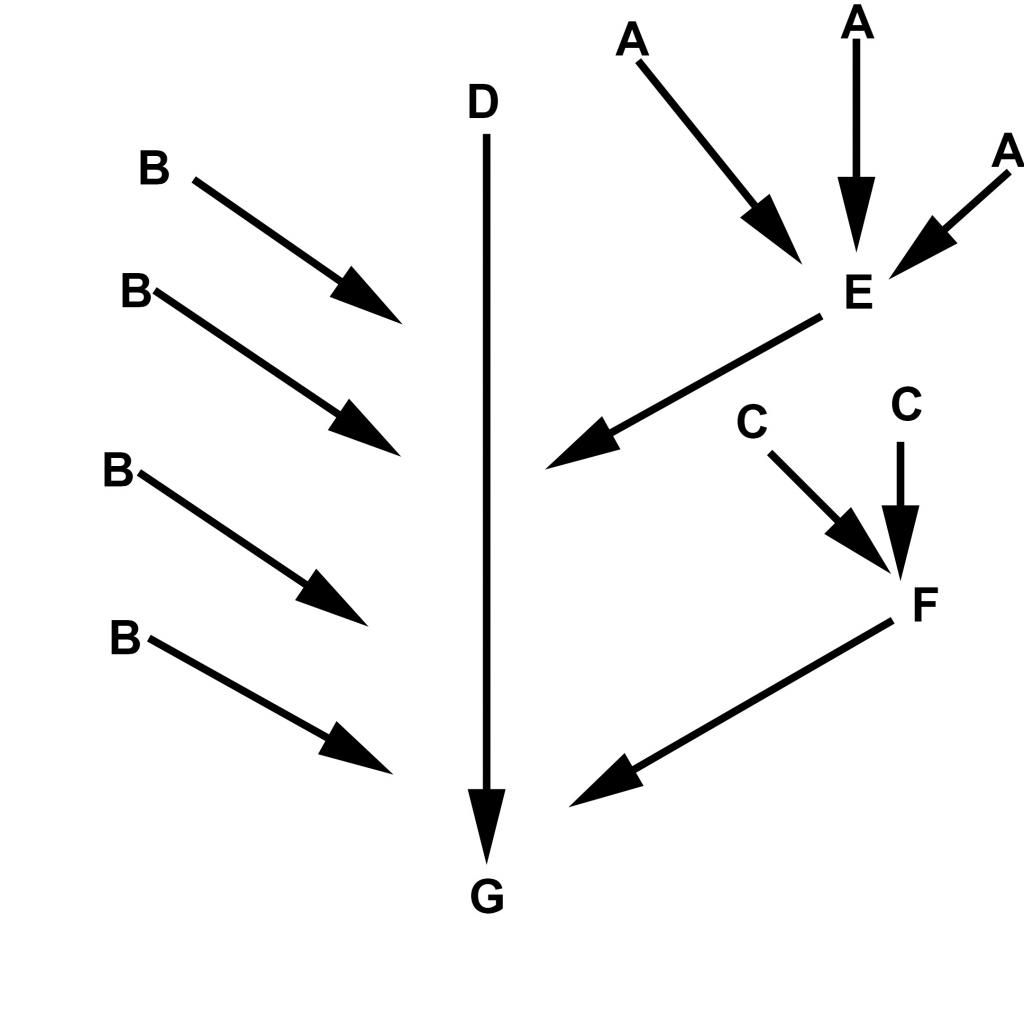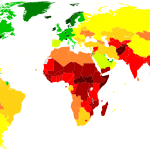Basic moral theology indicates that we can, and in most cases should, use the vaccines against COVID. I have repeatedly shown how remote this is. One article showed how almost common every medicine (except Gas-X) has been tested on a fetal cell line, just like the two main COVID vaccines in the USA. Jose Trasancos of COG for Life critiqued this. I will respond below. I will begin and end with a bit of the big picture, showing how this fits into Catholic moral theology. I have a longer more technical critique of him in the middle regarding the causal nature of testing. Before concluding, I will actually offer some ideas for him to improve the work of COG for Life given he recently took over and seems to be starting to move in a more helpful manner.
Catholic Moral Theology and “Special Cases”
Catholic moral theology has occasional special cases. For example, public admission of guilt generally can’t be a requirement for absolution, except there are a few special cases like if you confess that you falsely accused a priest of sins in the confessional you need to publicly retract that for absolution.

The Church has consistently taught the reality of an act being permissible even with some cooperation in evil. As I’ve noted several times before, almost everything we do in a modern world does this at least once you get to extreme remoteness, like is involved in testing vaccines.
To argue that we should not take COVID vaccines only tested on fetal cell lines, a person needs to make several nested special cases. First, they make a special case of this vaccine versus other vaccines as most don’t seem to object to rubella vaccines as strenuously despite rubella vaccines being more connected to abortion. Second, they make a special case of vaccines versus other medicines. Third, they make a special case of medicines versus other uses of the same cell lines testing other things. Fourth, they make a special case of fetal cell lines versus other connections to abortion like funding China’s forced abortions when we buy Chinese goods. Fifth, they make a special case of abortion with regard to remote cooperation (it’s OK to cooperate in slave labor to get the materials for my electronics but not abortion even if many more times remote).
It is possible to make this argument with one or two less nested special cases, but you still have multiple nested special cases when such nesting doesn’t exist elsewhere in Catholic moral theology.
The Causal Nature of Testing
Trasancos claims there is a radical difference between the testing done on a drug to approve it versus testing after. Obviously, there is some difference, but far less than he claims in this article. In another article, he basically admits as much.
All that I directly participate in by taking a particular medicine is the production process. Everything regarding testing only has an indirect connection. Evidently, a test included in a drug being approved for human testing or for approval of it to be sold is a more important test, but how much so? I think the degree of difference here is rather limited as all are indirect and thus not too related, to begin with.
Here’s a chart of the causality for a pharmaceutical that might help us keep track:
- A = tests used in approval for the initial approved use
- B = test done not included in any formal approval of the drug
- C = tests used in the approval of another approved use (or that propose some new use), or to answer FDA concerns about interactions, etc.
- D = production of the drug
- E = initial approval
- F = Subsequent approval for another use
- G = you or I as the end-user, using the drug.
Hopefully, the arrows demonstrate that only the production has a direct connection to the end-user. All the others have an indirect use. Sometimes, tests like B are done before approval or after, but the point where a test becomes at least slightly more connected is when used for approval as E or F could hold up production more than B (or any individual A or C test).
Now if one is using a drug for the use suggested or approved by F, then tests C are the most connected tests (not tests A). They would seem as connected as tests A would be for one using it for the original intended purpose.
On March 25, after it had long been established that tests C for using ivermectin on COVID involved HEK-293, Trasancos posted that we should use ivermectin to treat COVID. The tests that even suggested ivermectin or hydroxychloroquine might work for COVID were done on HEK-293 cells. Sure, if one were using these drugs for things they were approved for decades ago without fetal cell lines, one could claim those tests are more indirect than on the vaccine. But there is no discernable difference between the connections to these as COVID treatments and the use of Moderna or Pfizer vaccines.
He claims this is “ethically uncompromised,” but this does not hold water. The basic research on P2X4 receptors and ivermectin in 2004 & 2006, which is the basis for using it against COVID, relied on HEK-293. Prior to COVID, this drug was used almost exclusively on non-viral pests so it would not be something a doctor would have suggested using on a virus were that research not done. Plus, multiple studies directly about using ivermectin to treat COVID used HEK-293, and human clinical trials for a new use for this drug with significant negative side effects would require lab tests (such as those tests done on HEK-293) showing it was at least moderately effective there. Sure, this specific organization did not do any tests on HEK-293, but that would be like saying that if the US government lifts patents, all of a sudden it would be ethical to take the exact vaccine currently used so long as made by a generic pharmaceutical company. One can argue against companies based on other practices, as one person has told me they sought out Moderna over Pfizer because of some other things Pfizer has done unrelated to testing this vaccine, but that is a separate concern.
The reality is that using ivermectin or hydroxychloroquine is connected to abortion almost identically to the Moderna and Pfizer vaccines. I cannot see any reasonable argument to avoid the vaccines but not these two drugs based on a connection to abortion. On the other hand, I can see reasons to prefer the vaccines as they are more effective (even the most optimistic tests for the others don’t reach 95% effectiveness) and prevent transmission better (ivermectin or hydroxychloroquine are more for treating one once infected, not mainly preventing infection).
(I leave questions about the effectiveness or prudence of using ivermectin or hydroxychloroquine for COVID. This is a medical question to be answered by experts in that field not moral theologians like myself. Nonetheless, it is worth noting that the FDA recommends against using ivermectin for COVID.)
Missing the Bigger Picture
The technical details just mentioned are not the main issue with Trasancos’s piece. His main issue is missing the bigger picture. Assuming his radical distinction between tests of type A, B & C above, he seems ready to forgo any medicine that has any connection with the approval process due to having tests of type A or C.
We need to look at all our cooperation in evil in our interconnected world. Our response to various points of cooperation should be in some way proportionate to how much we cooperate in grave intrinsic evil. At the level of taking a drug, the cooperation is so remote that it is about equivalent to spending a fraction of a fraction of a penny on Chinese goods or on electronics where the raw materials were extracted using slave labor. (A COVID vaccine has about the same connections as 1/378,000 of a cent spent on Chinese-made products). Yet, how many of us even check these things?
We should be aware of remote cooperation and avoid it when reasonable. However, it is only a small part of the circumstances of the act. Circumstances often make a good act imperfect but still moral. Almost every act we do that involves money or the wider society involves some imperfection in the circumstances. At the level we are dealing with for vaccines or other drugs tested on fetal cell lines, the remoteness is such that the effect is essentially negligible. We can’t avoid that degree of remote cooperation in modern society.
COG for Life Is Improving
As I have been very critical of COG for Life above and elsewhere, some may think I dislike them. I do not. I think that it works to have a specific organization fighting different evils people cooperate in. I don’t think COG for Life should give up fighting to prevent the creation of new fetal cell lines to fight slave labor in cobalt mines. (Aside: it would be great if someone else started an organization to fight slave labor in cobalt mines.)
I think there are two possible ways to present this mission better.
- First, focus on researchers, not the general public as there the evil is significantly less remote and there can be options that are reasonably close scientifically but solid ethically. Often for the end-user, there is not much of an option. This would require getting more scientifically minded and qualified people in appropriate fields in leadership.
- Second, if we want to move beyond vaccines grown on fetal cell lines (the main concern of COG for Life before 2020) to any medicine tested on these cell lines, we can do better focusing on medicines that are less for the sake of others, preferably not life or death. When Catholics say they won’t vaccinate due to fetal cell lines, we can come across as uncharitable or not fully pro-life to some we want to convince; but if we started boycotting stuff where we take on any suffering ourselves rather than pass it particlaly on to others, it comes across as more authentic. For example, recently I had poison ivy. If someone created a new poison ivy treatment using a fetal cell line, it would be an ideal candidate to boycott. I would join in boycotting that as I’d be willing to undergo an annoying rash for a few days, but I’m not willing to put others at risk of me giving them a vaccine-preventable disease.
I think Trasancos seems to be moving COG for Life in a good direction. First, he is now being clearer about the fact there are not fetal cells in vaccines. Catholics who say otherwise work against the goal of ending such research as they make our argument sound ridiculous to scientists. (I am not a scientist but have studied enough to understand it.) Second, the fact Trasancos has a doctoral degree in math helps the cause, although getting board members who are MDs or have biology PhDs would help even more. Finally, I would suggest he check some of the older materials on his website with bad theology or misleading scientific statements and clean it out. (If he reads this, he can message me for details: I’d rather have them offline, so public linking to them isn’t a great idea.)
Conclusion
Ultimately, we should avoid remote cooperation in evil to the degree possible. However, the more remote it is, the less there is an obligation. When dealing with the remote cooperation with (or appropriation from) some abortion when dealing with pharmaceuticals tested on fetal cell lines, the connection is remote by multiple steps so imposes a very small obligation. Melissa Moschella notes, “[the duty to avoid fetal cell lines] is probably weaker than the duty not to buy Energizer batteries, hold a Chase bank account, or engage in the multitude of other daily activities that actually constitute remote cooperation with evil – duties that are so weak and easily defeasible that in common language we would not call them duties at all.”
Notes:
- Please support me on Patreon so I can keep writing more on issues like this.
- Sorry for being so long without posting: I was off for a while and had a ton to catch up on once I got back.
Update note: Dr. Lisa Gilbert and I each did about half the list. Jose Trasancos claims otherwise but you can send a tweet to Dr. Gilbert (linked in the prior article) if you doubt this. I do not have advanced degrees in biology or medicine but am writing a doctoral thesis in moral theology which borders on bioethics (originally it was going to be genetic privacy – so I took multiple relevant courses – but moved to privacy more in general), so I have studied enough to be able to read scientific papers.













